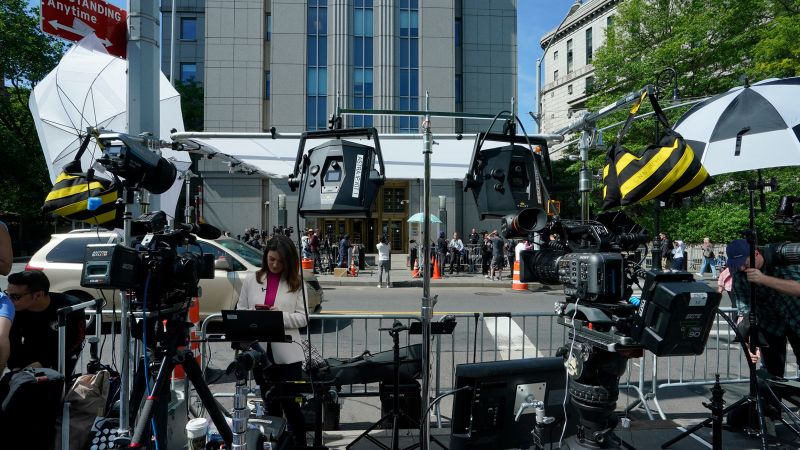Salacious details, discussion of domestic violence and a Black male celebrity who for decades had a strong base of supporters.
While the alleged crimes are not the same, some of the cultural issues involved could describe the trial of Sean “Diddy” Combs in 2025, or that of O.J. Simpson in 1995.
Simpson’s case sparked an era of “trialtainment,” with an abundance of viewers and readers following an exhaustive round-the-clock news cycle, absorbing every detail of the bombshell murder case. Thirty years later, as the world awaits a verdict in Combs’ federal sex trafficking and racketeering trial, interest in celebrity court cases remains high, but public discourse around race and intimate partner violence has changed.
“I think a lot of women have evolved in terms of taking a stance that we can speak up. We are now just being comfortable with speaking up and this is as a result of the #MeToo movement,” legal analyst and entertainment law expert Lisa Bonner – who is not connected to either case – told CNN.
Simpson,who died in April 2024 at the age of 76 following a battle with cancer,was accused of fatally stabbing his ex-wife Nicole Brown Simpson and her friend Ron Goldman. The star football player and actor was acquitted in 1995.
Combs is facing allegations of sex trafficking, racketeering conspiracy and transportation to engage in prostitution. The mogul and music artist has pleaded not guilty.
Both men had well respected careers, amassed wealth and power and initially enjoyed the support of fans, especially in the Black community.
“One thing that is different in this case than it is for Diddy is all the Black people were on O.J.’s side,” Bonner said. “It was on the heels of (the 1991 beating by Los Angeles Police Department officers of) Rodney King and all of the civil unrest that had gone on regarding the mistreatment of Black people, especially Black men.”
Both Simpson and Combs were also accused of domestic violence and in the case of Combs, some ofhis support slippedafter CNN last year published a hotel surveillance video of himphysically assaulting his then-girlfriend, singer Cassie Ventura, in 2016.
Nicole Branca, chief executive officer of New Destiny Housing, a New York City nonprofit that provides housing and services to survivors of domestic violence and their children, said high-profile trials like these can be “helpful to hold people accountable.”
“It’s probably better that there’s this much coverage because these are celebrities, these are people with a lot of money and a lot of attention and if (domestic violence is) happening to them, then maybe it makes it okay for people to speak out about their own experience,” she said. “That’s my hope. Do I know if that’s happening? I don’t, but the fact that people are more vocal about it these days and there are more laws being passed at the city, state, and federal level, makes me think that this contributes to that discourse.”
Branca pointed to theNew York City Councilrecently introducing a bill to train first responders in the detection of traumatic brain injuries – given that such injuries are common with domestic violence victims – as an indiction that authorities are taking the issue more seriously.
Bonner, who has appeared on CNN to discuss the Combs case, said that while “there’s still a lot of victim shaming that goes on,” the cultural strides made in the past three decades likely made it easier for Ventura to file acivil suit against Combs in November 2023,which preceded a federal criminal investigation. Combs denied wrongdoing, and the two settled the lawsuit a day later.
“It’s no longer acceptable that men are allowed to act in such a manner and get away with it. Women are no longer scared to come forward,” Bonner said. “That’s the reason why Cassie was able to bring this lawsuit because of the simple fact that the #MeToo movement gave women a voice.”
Public awareness of the #MeToo movement gave rise as a hashtag in 2017, after Hollywood super producer Harvey Weinstein was accused of sexual harassment and assault, but it was founded more than a decade prior by activistTarana Burke.
What followed after Weinstein were allegations against other men in powerful positions.
Bonner said that when it comes to legal issues of the rich and the famous, “we want a light, a look into the life of a celebrity.”
“In some instances it’s a great equalizer because this person, now all of their business that is normally shrouded in secrecy, has come to the front,” she said.
An estimated150 million people reportedly watched Simpson’s verdict in 1995. While the Combs trial has not been televised, the social media era has meant details of his alleged abuse of power and hours of trial testimony have been closely followed and discussed for months.
“It gives us a chance to weigh in on something that’s completely not our business to talk about it,” Bonner said. “It’s in the zeitgeist.”
